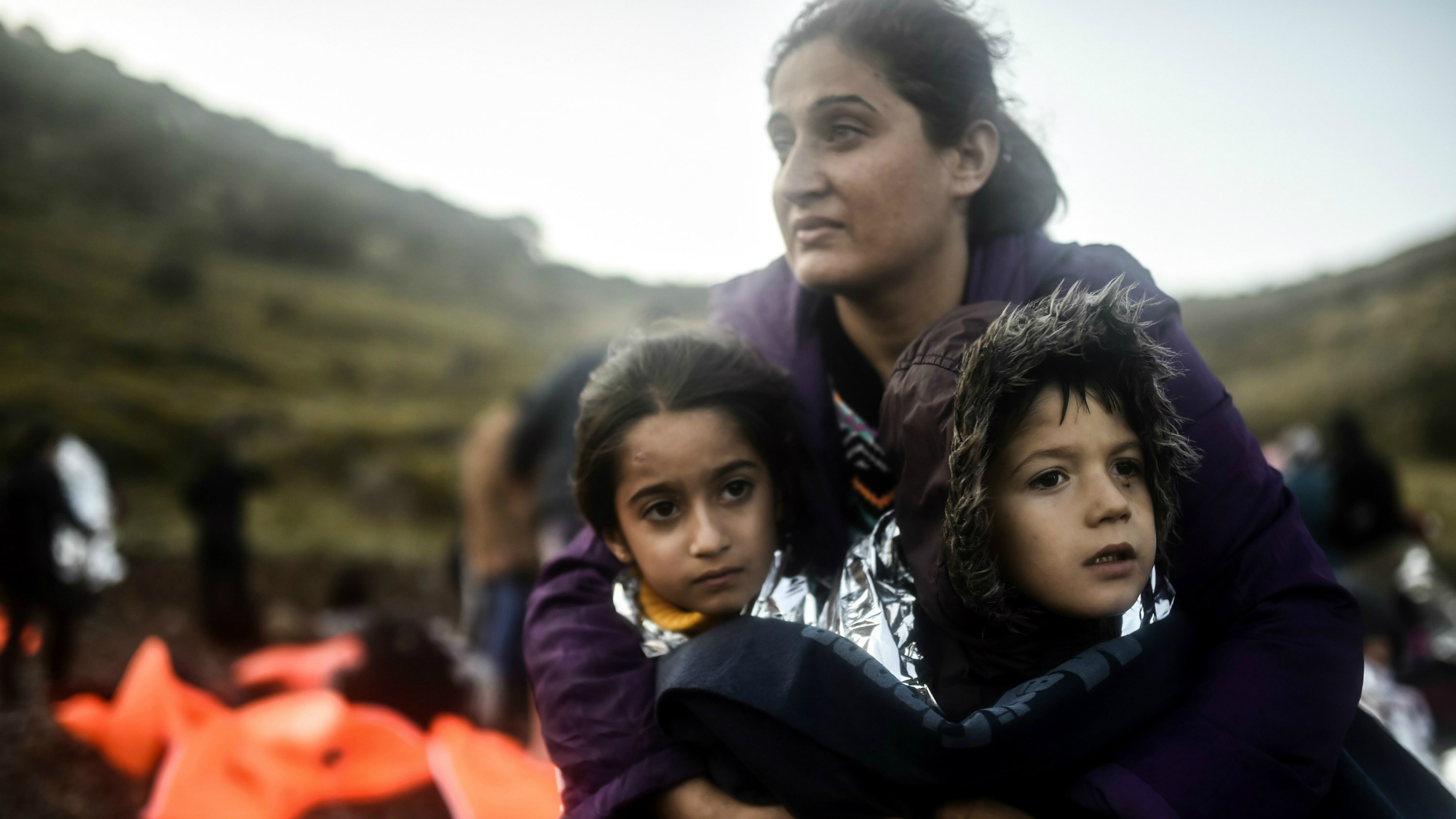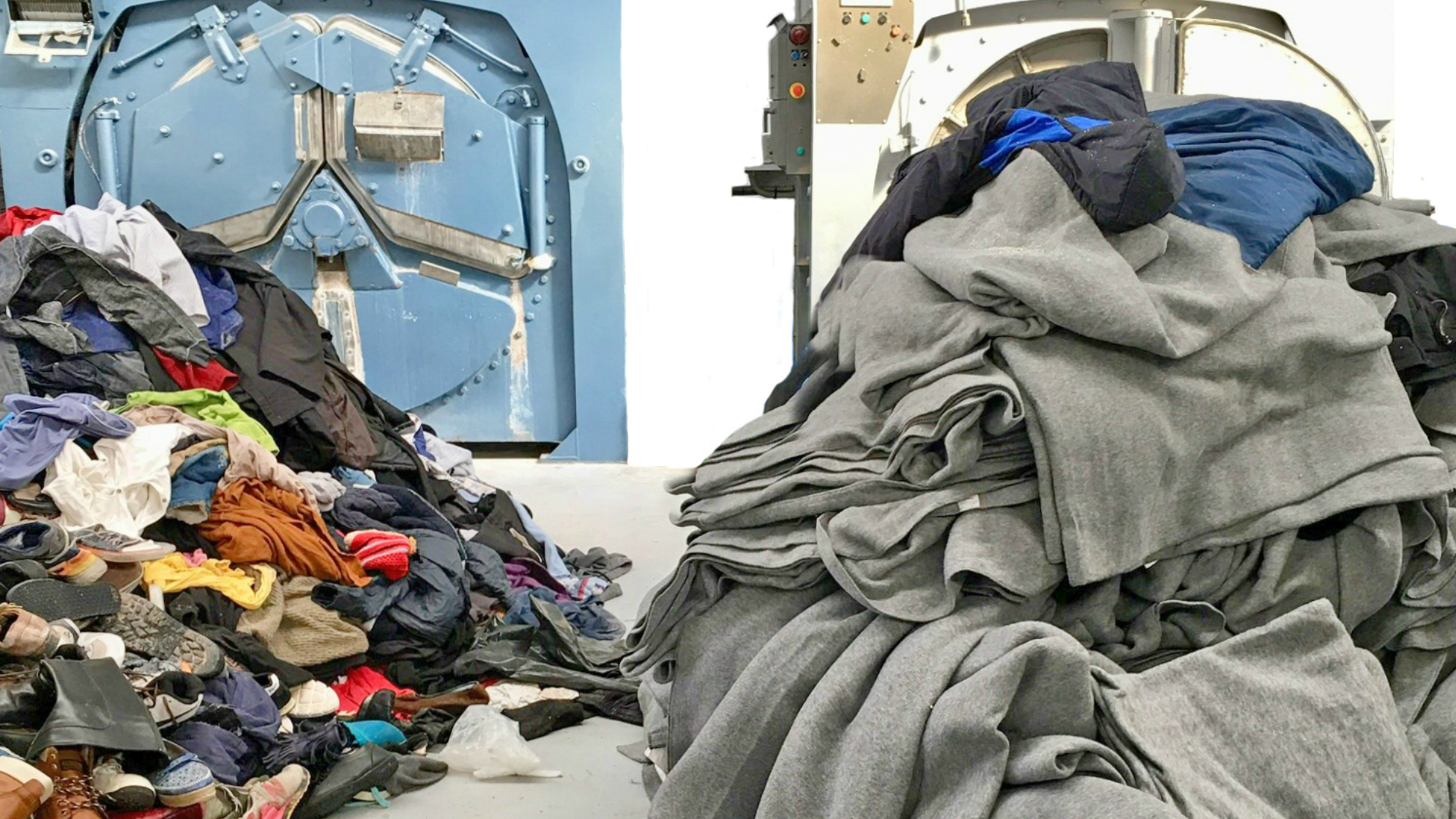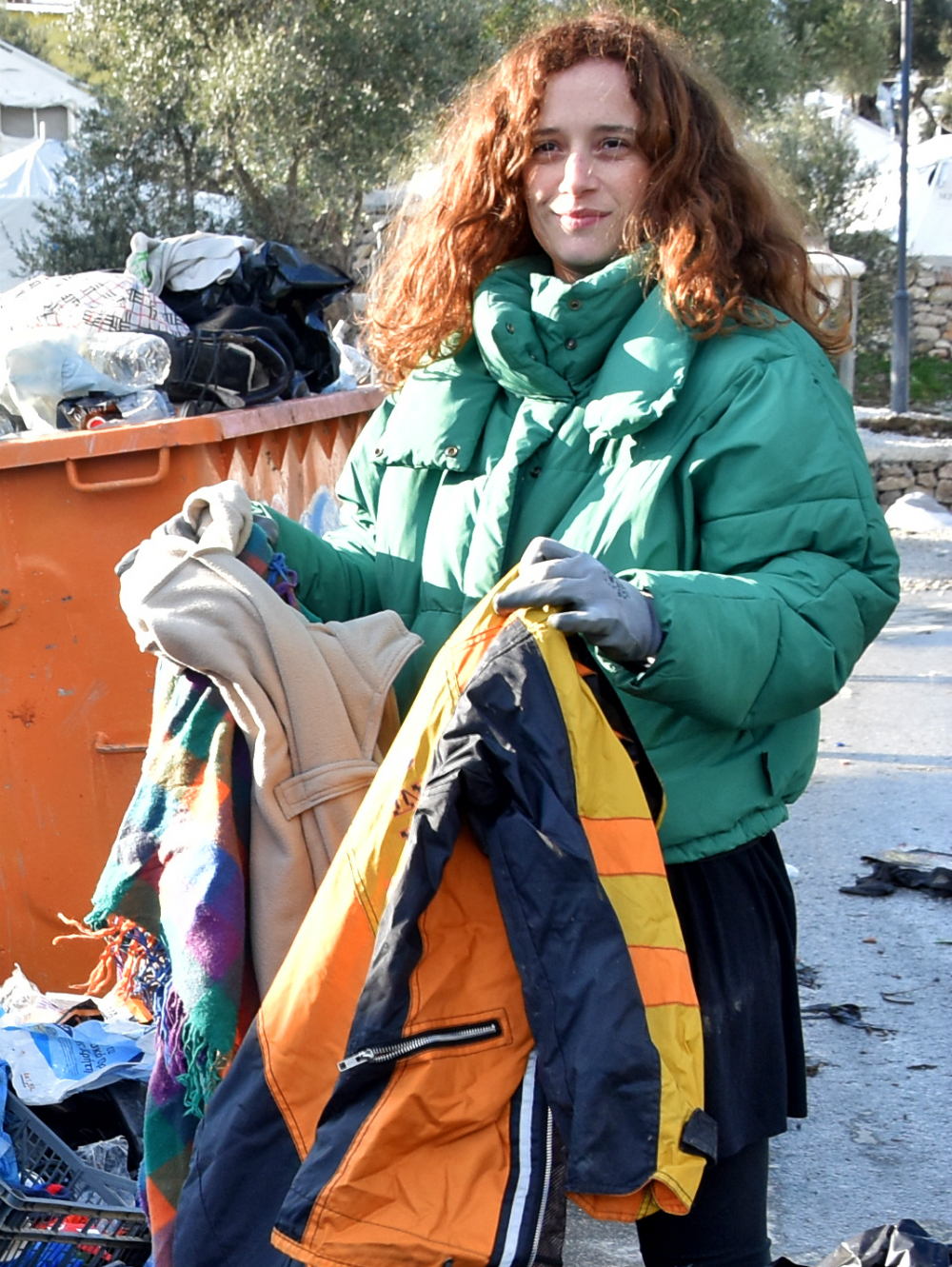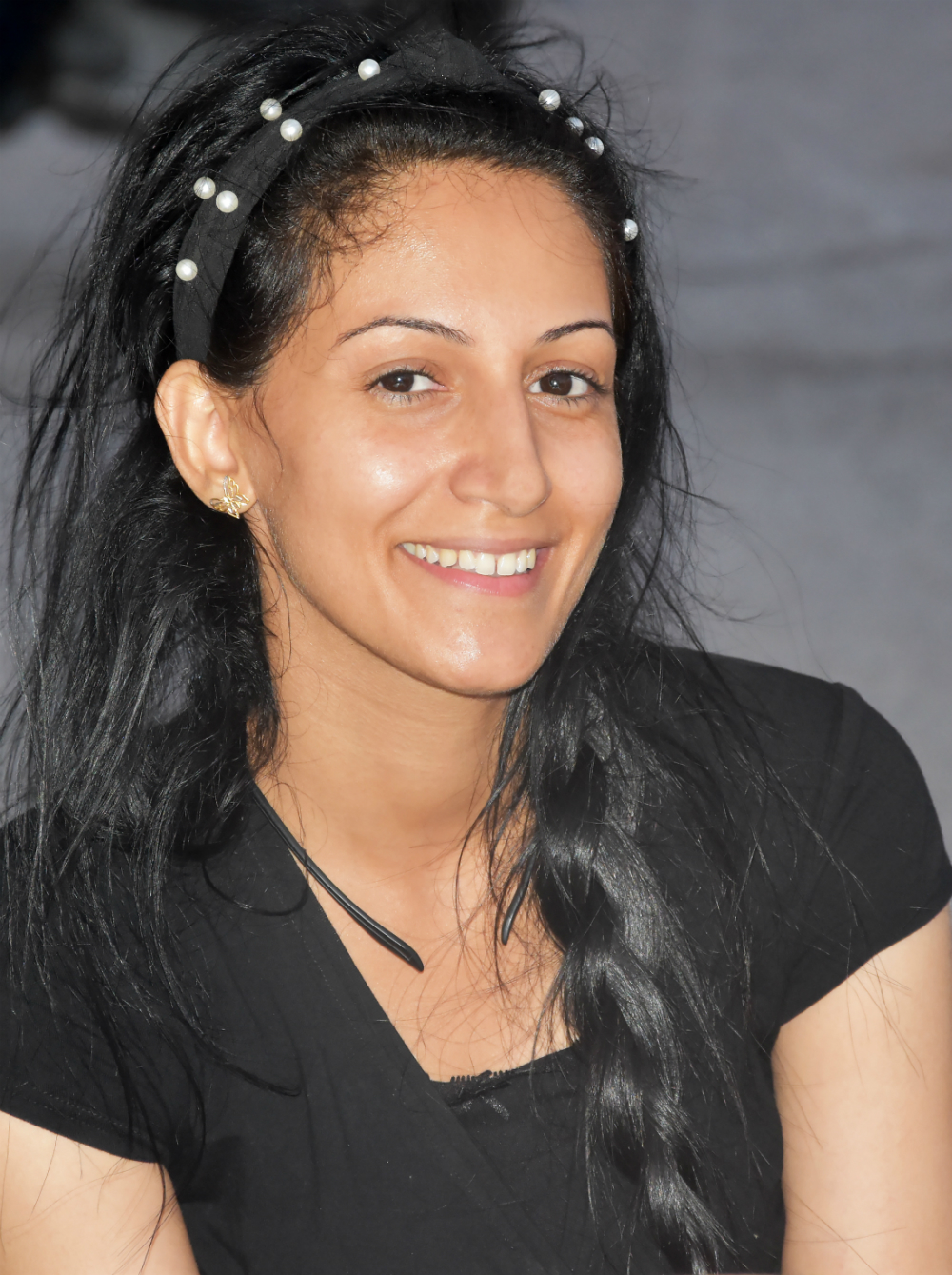The Dirty Girls of Lesvos champion laundry not landfill - and they're transforming the lives of refugees
Sea-soaked and shaking with fear, waves of refugees arrive daily on Lesvos's shores. Now, a pioneering initiative is helping to literally wash away the indignity of destitution through the power of laundry. To mark International Migrants Day, we meet Dirty Girls founder, Alison Terry, to share their story


Sea-soaked and shaking with fear, waves of refugees arrive daily on Lesvos's shores. Now, a pioneering initiative is helping to literally wash away the indignity of destitution through the power of laundry. To mark International Migrants Day, we meet Dirty Girls founder, Alison Terry, to share their story
Words by Louise Court
Slipping her hand into the pocket of the grubby, sea-sodden coat she’d picked up from the stony beach Alison Terry, the founder of Dirty Girls of Lesvos, felt the unmistakable shape of a door key. Running her fingers along the distinctive metal ridges she tried to imagine what had gone through the mind of its owner as they had locked their home for the last time and said goodbye to everything that was safe and warm.
She imagined them fleeing with their family and friends from the shattered streets of Syria, pocketing their key and with it all their dreams of returning home and picking up the torn threads of their old lives. Instead, their reality had been to wash up cold, tired and terrified on a beach of this Greek island. With a flimsy life jacket strapped tightly across all the clothes they owned, the key holder had managed to survive the perilous sea-crossing from Turkey to Greece crammed in a dinghy that was never fit for purpose.
Terry, a UK-based entrepreneur and regular visitor to the island explains: 'It was the one thing I found that evoked the greatest sense of loss in me. When arrivals started to escalate in 2015 I found myself on the shores meeting boats. People were arriving in sea-drenched clothes. I was astonished to see that after exchanging wet clothes for dry, donated ones their perfectly good clothes were trashed. The clothes of thousands of people were trashed every day. I knew immediately I was going to stop it because it made no sense environmentally or economically.'
And so Dirty Girls was born in 2015, with an understanding that simple access to clean clothing and bedding is crucial to maintaining the refugees’ dignity. And that good quality wet and dirty clothing discarded by thousands of people fleeing war and terror would not be trashed.
Now, with three huge commercial laundries - one in Lesvos, one in Athens and the third in Northern Greece, Dirty Girls can clean 2,000 blankets and sleeping bags a day, if necessary, as well as clothing. According to UNHCR, 55,189 people arrived by sea in 2019 and are currently stuck on the Aegean islands. Around half of them (24,472) arrived just on Lesvos, the island that is actually hosting 20,060 individuals. Terry tells Marie Claire that people in Moria were hit by heavy rains and an extreme drop of temperature in December 2019, and the picture coming from the island is not different from the ones of the past years: families forced to live in mud, with no shelter and no protection from the harsh winter to come. An image that Europe knows too well, sadly.
Celebrity news, beauty, fashion advice, and fascinating features, delivered straight to your inbox!
So, with about 60,000 people living in makeshift campsites all over Greece, washing their blankets and sleeping bags is necessary for comfort, health and dignity. Without Dirty Girls washing them, they would most probably be trashed and replaced.

'Government and non-government organisations have a cavalier attitude of replacement rather than washing,' explains Alison. 'A new blanket costs more than seven euros, plus the environmental cost of trashing the one it is replacing. Washing one costs two euros fifty and gives employment to local people. In four years we have diverted 1400 tons of material from landfill.'
Everything is laundered to a level of hospital cleanliness - scorching temperatures eliminate germs, lice and bed bugs. Some items are so filthy they need numerous washes.
'Everyone who works with Dirty Girls has a keen awareness that we aren’t just dealing with dirty materials, but with items that represent individual people,' says Alison. 'In pockets of discarded clothing I have found wet photos. Pictures of people looking happy and relaxed in their homes or on a holiday perhaps. The life jackets were worn on treacherous journeys from which some people survived and others didn’t.'
Dirty Girls also has a busy upcycling programme - using life jacket material for messenger bags for example and collaborating with social enterprises such as lovewelcomes.org that sells products made by refugees.

Rosamund Hutchison, 37, from London, normally works in publishing but has spent time during July and December 2019 volunteering on Lesvos and explains what she did.
'I collected a lot of very dirty and wet blankets, pulling some from the mud and sand. I also went bin diving to rescue clothes from landfill. We’ve all seen the images of Greek beaches strewn with life jackets and clothes but nothing prepared me for coming across a toddler's life jacket lying on the sand,' she recalls. 'That's when I imagined the small scared person wearing that jacket and their desperate parents. What's also shocking is when it's pulled apart, it's made from the thinnest wedge of polystyrene. A family fleeing a war probably paid well over £100 for it.'
After collecting the filthy and often wet clothes and blankets, they are gathered into huge bags and transported to the laundries. 'I once saw a truck pick up about sixty bags of blankets and clothes that we had retrieved,' says Hutchinson. 'I never imagined they'd ever be usable because they were so dirty. It was a massive surprise to see them look like items I’d have in my own home after being laundered.'
Hala, a 30-year-old Syrian, arrived on Lesvos in July 2019, sobbing, exhausted and scared. She came with her family including her three-year-old son Adam. Since then Dirty Girls has regularly supplied them with clean sleeping bags, blanket and pillows as well as clothes.

'We were given blankets when we arrived but they weren’t enough because it was very cold at night,' says Hala. 'Then after a month, our sleeping bags became very dirty. Dirty Girls gave us more and are helping us survive the winter safely. Alison and her friends give us a positive energy to be brave against the bad situation here. We used to have clean bedding before we had to leave our homes, it is important for our health and to fight things like lice. I feel comfortable, healthy and safe when I have clean blankets, sheets and pillows. It is that simple.'
* Dirty Girls operations are funded by donors: people with a common compassion for other people who have become refugees, and a concern for our shared environment. To donate and help Dirty Girls carry on: dirtygirlsoflesvos.com/donate
Maria Coole is a contributing editor on Marie Claire.
Hello Marie Claire readers – you have reached your daily destination. I really hope you’re enjoying our reads and I'm very interested to know what you shared, liked and didn’t like (gah, it happens) by emailing me at: maria.coole@freelance.ti-media.com
But if you fancy finding out who you’re venting to then let me tell you I’m the one on the team that remembers the Spice Girls the first time round. I confidently predicted they’d be a one-hit wonder in the pages of Bliss magazine where I was deputy editor through the second half of the 90s. Having soundly killed any career ambitions in music journalism I’ve managed to keep myself in glow-boosting moisturisers and theatre tickets with a centuries-spanning career in journalism.
Yes, predating t’internet, when 'I’ll fax you' was grunted down a phone with a cord attached to it; when Glastonbury was still accessible by casually going under or over a flimsy fence; when gatecrashing a Foo Fighters aftershow party was easy-peasy-lemon-squeezy and tapping Dave Grohl on the shoulder was... oh sorry I like to ramble.
Originally born and bred in that there Welsh seaside town kindly given a new lease of life by Gavin & Stacey, I started out as a junior writer for the Girl Guides and eventually earned enough Brownie points to move on and have a blast as deputy editor of Bliss, New Woman and editor of People newspaper magazine. I was on the launch team of Look in 2007 - where I stuck around as deputy editor and acting editor for almost ten years - shaping a magazine and website at the forefront of body positivity, mental wellbeing and empowering features. More recently, I’ve been Closer executive editor, assistant editor at the Financial Times’s How To Spend It (yes thanks, no probs with that life skill) and now I’m making my inner fangirl’s dream come true by working on this agenda-setting brand, the one that inspired me to become a journalist when Marie Claire launched back in 1988.
I’m a theatre addict, lover of Marvel franchises, most hard cheeses, all types of trees, half-price Itsu, cats, Dr Who, cherry tomatoes, Curly-Wurly, cats, blueberries, cats, boiled eggs, cats, maxi dresses, cats, Adidas shelltops, cats and their kittens. I’ve never knowingly operated any household white goods and once served Ripples as a main course. And finally, always remember what the late great Nora Ephron said, ‘Everything is copy.’
